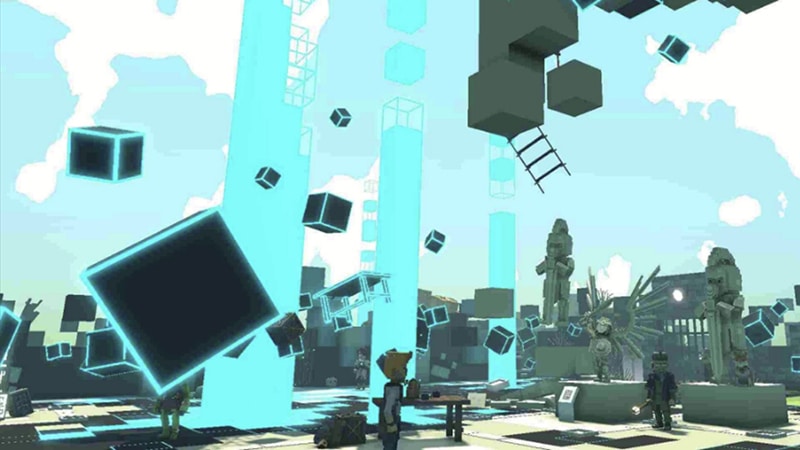With the advent of 5G wireless technology and virtual reality headsets, cities, schools, and workplaces will soon be fully digital. Thus, the inclusion and democratization of asset ownership will be facilitated by NFTs, metaverses, and play-to-earn ecosystems.
Tokenization in real estate comes in two flavors: EA (entire asset) and FO (fractional ownership). EA enables a buyer to assume full rights of the asset. On the other hand, the tokenization of FO is straightforward but with limitations. Investors can purchase shares in a manner similar to that of a crowdfunding site.
Depending on the investment structure, each fractional owner has a certain number of tokens that represent a certain number of shares in the enterprise. When it comes to the real estate business, the use of FO tokenization is currently limited by regulatory bottlenecks.
A property deed must be converted into an NFT for EA tokenization to work. However, due to the regulatory climate around real estate investments, this is still extremely difficult to achieve.
How digital real estate investment works
When selling or buying property as an NFT, the first thing to do is to make sure that it is lawful and compliant with legislation. In order to accomplish this, you need to involve legal counsel that has prior expertise working with blockchain technology. Maintaining compliance with the law is always a top issue, but new technology makes it more difficult.
NFTs in the real estate industry is just like any other NFT. If you’re looking to make a profit, you can resell them to a buyer who has the right quantity of cryptocurrencies in their digital wallet, or you can buy them with the seller’s cryptocurrency and store them in your digital wallet.
Rather than representing a single physical or digital property, investments that are kept in the form of FO tokens function more like stocks in the sense that they represent a portion of a real estate development project. If you’re a shareholder, you’re entitled to a share of profits just like any other investor.
Buying and selling NFT real estate assets

If you wish to sell a digital asset that you possess, you will need to upload the asset in question first to the marketplace of your choice. This is presuming, of course, that the marketplace in question is compatible with the blockchain that the NFT was developed on. Once you’ve decided on a price, you may either put it up for auction or put it up for sale at a fixed price.
After it has been posted, the asset will undergo validation by the marketplace. The marketplace will take care of the transfer of the NFT from the seller to the buyer, as well as the transfer of crypto money to your wallet, less the listing fee and other related blockchain computing fees, once the transaction has been completed.
In order to buy cryptocurrency or real estate, you will need to establish a few separate accounts first. When working with most leading brokers, creating an account is a simple and quick process.
There is no difference in the process of purchasing NFT land compared to purchasing an ordinary NFT. Most decentralized in-game NFT exchanges have both land and other NFT assets available. Also, you can get them from leading NFT marketplaces, such as OpenSea or Rarible. Alternatively, by buying the governance tokens for each Metaverse, you may get a share of its NFTs and have a say in its future development.
You can list your NFT asset in an NFT marketplace once you’ve acquired it. You can buy property at auction by bidding on it and paying for it with either fiat money or cryptocurrency. To complete the transfer, the buyer must fill out documentation and get the NFT from you before the funds are given to you. The property belongs to the buyer once the NFT has been purchased by him or her.
Who should invest in NFT real estate?
If you’re an investor, collector, or player who likes access to a variety of land alternatives and the potential for an ROI, you should consider owning virtual land (NFT real estate). Investing in NFT real estate early on is probably a smart move since the property value and demand for these virtual plots are expected to soar.
Despite the high cost of most of the virtual land, you should still think about purchasing your own NFT property. Investing early in virtual real estate could yield huge rewards in the future, as the market is still in its infancy. This scenario offers a hopeful glimpse into the future of virtual land and assets through the integration of VR, cryptocurrency, and blockchain.
On the other hand, nobody can guarantee for sure that buying a virtual parcel will pay off in the future because of the uncertainty. So, remember to weigh the benefits and drawbacks of owning virtual property.
Drawbacks to digital real estate Investing
- Fraud and irreversibility: Because transactions on a blockchain are irreversible, there is a significant possibility of fraudulent activity occurring. If a payment or NFT is sent to the incorrect recipient or wallet address, there is minimal likelihood of reclaiming the funds sent.
- Hacking: Trading platforms and exchanges are not infallible entities. One of the world’s largest NFT markets, OpenSea, recently lost hundreds of valuable NFTs to a phishing attack.
- Lack of regulation: Right now, there aren’t any rules or laws governing NFT real estate in an online game or metaverse. Investors face a significant amount of risk as a result of this situation.
In summary
In NFTs, one of the most undervalued asset classes is metaverse real estate, which includes things like land and virtual buildings. The financial case for buying and selling metaverse land is quickly gaining support, both in terms of cultural comprehension and financial knowledge. Therefore, this is a segment worth investing in, with a focus on long-term gains. However, the NFT market is still in its infancy, and this necessitates greater research by each individual investor.